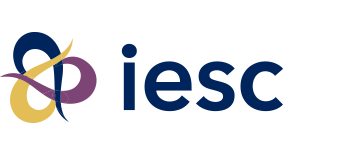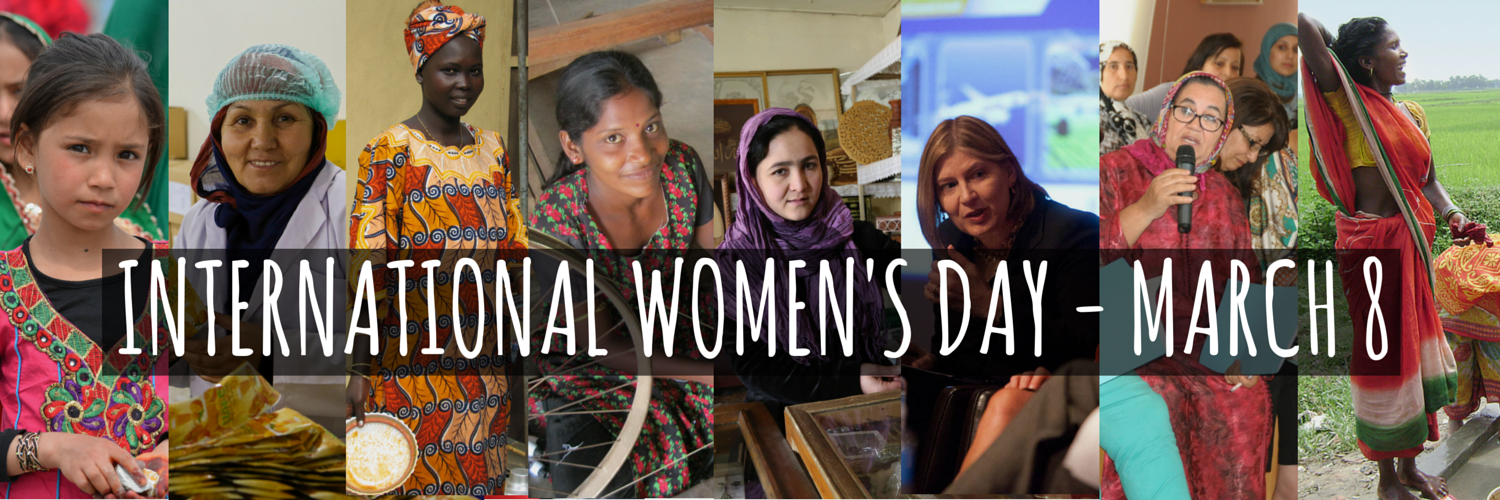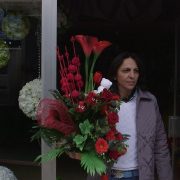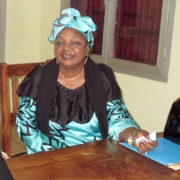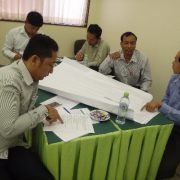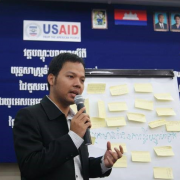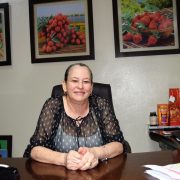RACHA Executive Director Chan Theary Talks Women’s Empowerment
RACHA Executive Director Chan Theary Talks Women’s Empowerment
In Cambodia, IESC implements a program that is strengthening local NGOs. The CBCLO Program is led by a small team in Phnom Penh who are bolstered by expert consultants and volunteers who offer training on critical topics such as accounting and financial management, policy and planning, human resource management, and more.
Susan Gurley is an IESC volunteer expert with a wealth of expertise in non-profit management (She also happens to be IESC’s newest board member). Susan completed two volunteer assignments in Cambodia, providing training and mentorship to a large health NGO called the Reproductive and Child Health Alliance.
In recognition of International Women’s Day, Susan had a few questions for Chan Theary, the executive director of RACHA.
 |
|
Chan Theary receiving the U.S. Embassy in Phnom Penh’s “Woman of Courage” award on International Women’s Day in 2013. |
As one of the few female executive directors of a Cambodian nonprofit organization, what are the three lessons you would like to share with the next generation of women non-profit leaders.
That is a really good question. Number one is, never forget that women can be empowered, if they are willing to step up and take the responsibility for that power. The second things is that women can do whatever a man can do. They can lead and inspire. And the third thing is, women are catalysts of change’they are creative and innovative and think clearly.
Did you have a mentor and what did that mentor teach you’
Yes, I have had many mentors. Every day I learn different things from all kinds of people. My family, my friends, my staff. My organization works at the grassroots level to educate and strengthen communities. In order to teach them, you have to learn from them.
Sometimes when you work hard to achieve something, you feel tired. Early in my career, I had people who told me nothing is impossible. One woman I met on my first job. I was a midwife, and so was she. ‘Be strong,’ she said. ‘Be determined.’ Another woman who mentored me, a doctor, taught me that you have to take calculated risks. One of my favorite sayings is, ‘A true leader is one who is humble enough to admit their mistakes.’
How do you suggest that women find mentors in the workplace’
First, I would suggest that women look for professional mentors both inside and outside their organization, and don’t forget about family and friends. But most importantly, to find a good mentor you have to know what it is you need and seek out people who have those skills.
How do you engage your staff to share their ideas and innovations’
My philosophy is that I should hear from them first. When they talk first, I empower them by listening and observing. They don’t feel pressured to agree with my idea, because they talk first. It is also important to give motivational and constructive feedback. This requires confidence. You have to be strong in yourself to give this kind of feedback.
What professional risks have you taken’
For midwives, there are many risks in the decisions we make. Sometimes you fight with the family. If there was a complication, the family or husband might say, ‘Just delivery my wife, don’t seek emergency care.’ The thing is, the baby could die. Maybe they give bad advice. I might please the family, but the baby will die. How can you balance the situation’ Sometimes you get advice, but you don’t have to take it.
When I was young, my dad said, ‘I don’t want you to be midwife.’ Why’ Because being a midwife is risky. During those days, I was on-call at night. I might have to travel long distances in the night to deliver a baby, and it was not safe. But I knew I wanted to be a midwife, so I did it.
What is the typical profile of your beneficiaries’ Who are they’ What are the problems they are struggling with.
Our beneficiaries are poor women and their partners, newborns, children, and adolescents. The health system is not good, and they struggle with health concerns, especially emergency obstetrics and newborn care, and nutrition for children. Newborns die. Family planning is available in Cambodia, but the people need a lot of education. The messages are misunderstood. And male involvement in family planning is also very important.
How do you empower your female stakeholders in the villages to become more self-sufficient in their decision making’
We have a project to empower women at the grassroots level called Saving for Change. Women become members of a collective savings group. They pool the money together and decide on the interest rate, say 2 percent, and women can borrow from the group at that rate. At the end of the year, they share the interest earnings with the group.
Having their own money that they control empowers women. It also cultivates leadership skills. After this group, many women become village chief or council member. They also learn negotiating skills, which helps with many household decisions, including when to have children. Once women have these skills, they share and impart them to other women, especially young mothers.
This builds a kind of social coherence that is very important at the grassroots level.
Do you have any final words for International Women’s Day’
Empowering women at the grassroots level is very important. Early interventions, and interventions that involve partners and their children, will bring a bright future for families, communities, and the country.
This article was written as part of IESC’s International Women’s Day 2016 campaign. To view all posts related to this campaign, click here.
